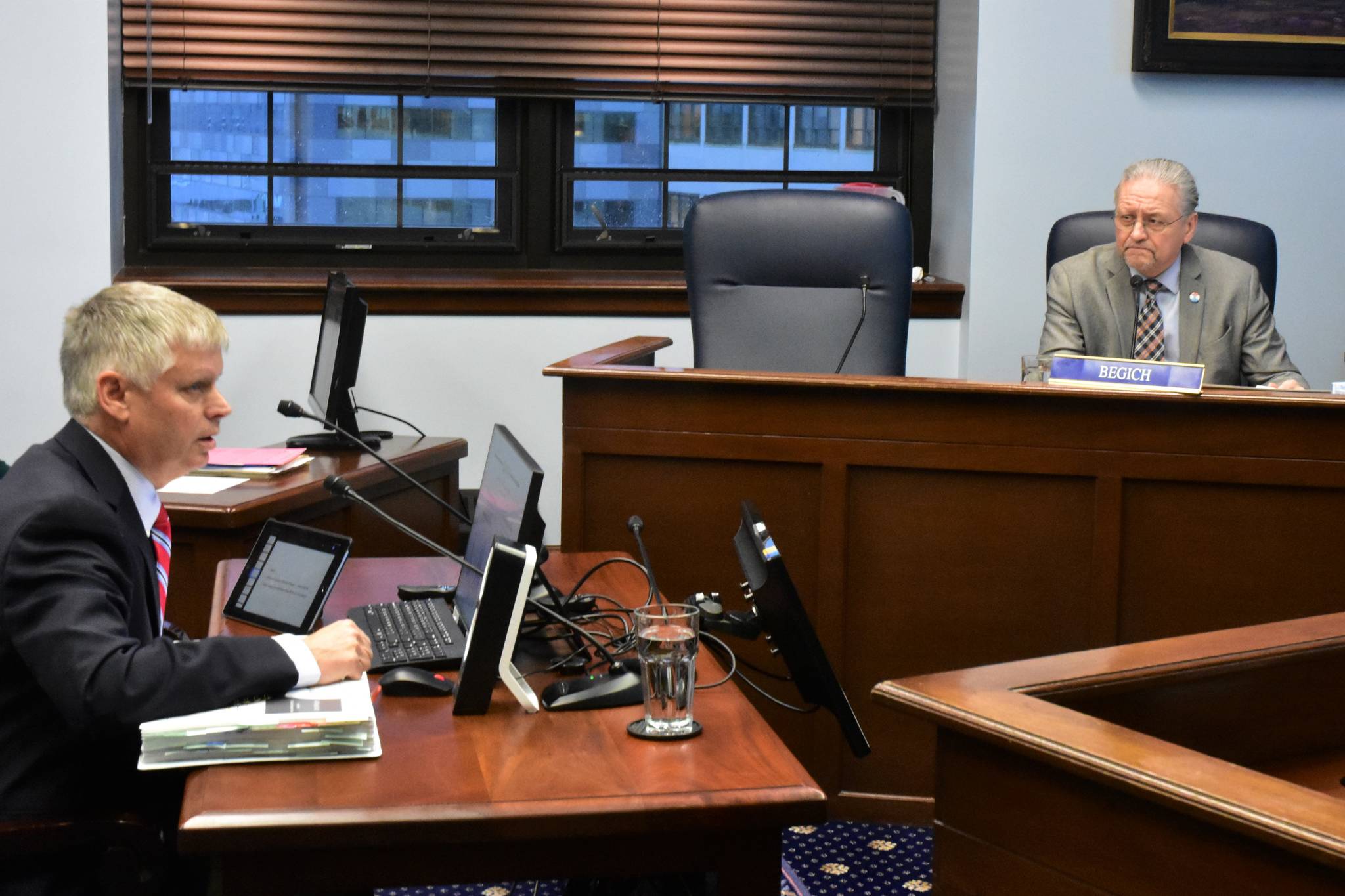Lawmakers on the Senate Education Committee got a crash course on the effects of student retention and promoting students to the next grade based on testing at a committee meeting Tuesday.
Despite being much celebrated for its bipartisanship and comprehensive approach, the Alaska Reads Act has a long way to go before it finally becomes law, and many of its finer details are still being hammered out.
One of the critical components of Senate Bill 6, better known as the Alaska Reads Act, are intervention programs that can be implemented if a student is found to be unproficient in reading. One of those provisions is the possibility of holding students back if they’re not able to read at grade level. Students will have multiple pathways to show reading proficiency, according to the text of the bill, so students who may not perform well on standardized tests might still be promoted to the next grade.
But if third grade students are found to not read at grade level by the end of the school year, parents and educators could make the decision to hold the child back a grade. Florida has a similar “test-based promotion policy” for third graders and so the committee heard from several experts on what the effects of that policy was on the state’s educational outcomes.
One of the presenters to the committee was Boston University professor Marcus Winters, an economist who had studied the effects of retention under Florida’s policy. Students retained in third grade showed substantial increases in GPA and decreases in remedial high school courses, Winters said.
But while retention programs might yield benefits down the line, retention programs are only meaningful when there are effective reading intervention programs in place which address student needs, according to Anji Gallanos, director of literacy, school readiness and pre-school for pre-K through third grade for the state of Colorado.
Colorado’s policy focuses on screening kids for reading deficiencies so that interventions can be made before students fall too far behind, Gallanos said. One of the critical components of interventions was teacher training that gives educators the tools they need to effectively help students with reading troubles. Quality screening for reading deficiencies are essential, she said, because there are a number of areas where students may have trouble reading. If educators are not able to identify which areas of reading a student is struggling in, it can make creating an intervention plan for that student difficult, Gallanos said.
At the end of the meeting, Department of Education and Early Development Commissioner Michael Johnson said while retention got a lot of attention during the meeting, the Alaska Reads Act is not a retention bill. Retention is an element of the bill but not its goal.
Helping students learn to read, and providing educators with the tools they need to help students succeed is the goal, Johnson said. Training teachers to be able to identify when students show reading deficiencies is critical component of the bill.
Contact reporter Peter Segall at 523-2228 or psegall@juneauempire.com.


